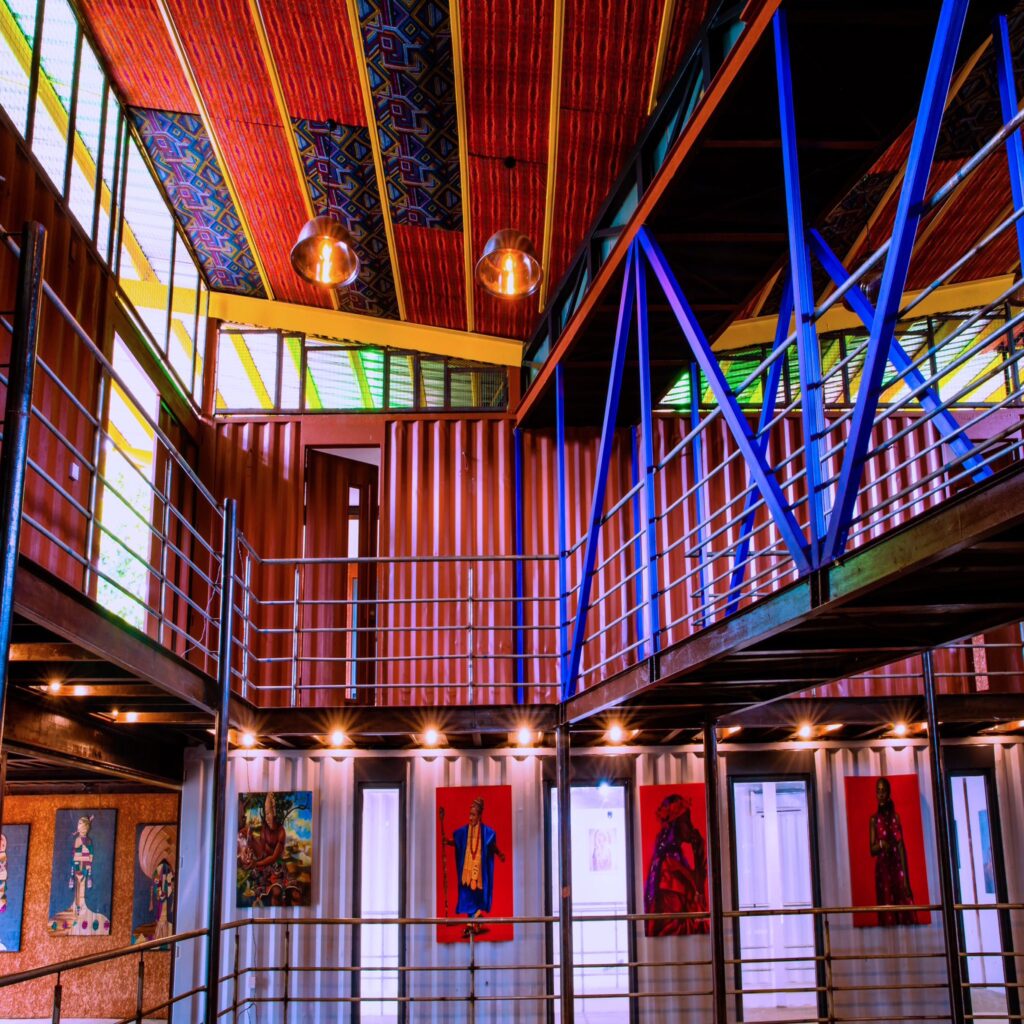WORKSHOP: 14th November 2023, Lagos (and online)

This event will be held both online and at Movenpick Hotel Ikoyi, Lagos, followed by a reception at The MAD House, Lagoon Front, at the University of Lagos co-hosted by the African Hub for Sustainable Creative Economies. The workshop has been organised by Dr Lauren England, and was supported by the Urban Studies Foundation Seminar Series Awards.
This half day hybrid event seeks to contribute to understanding of creative economy development in Africa, specifically the urban dimensions of creativity and the urbanization of the creative economy. The workshop aims to approach this in a way that considers the specificities of African cities, building on emerging research (Sitas, 2020; Rosenburg and Brent, 2020; Comunian et al., 2021) and recent efforts to ‘re-describe’ concepts and phenomena such as the creative city (Mbaye and Pratt, 2020) and understand how such paradigms are ‘being grounded, renegotiated and put into practice’ (Nkula-Wenz, 2019, p.581) in African cities.
The workshop will focus on dynamics and geographies of creativity within and beyond African cities, and the policy and infrastructure required for sustainable creative economy development. Discussions will address urban transformation and job creation (Snowball and Collins, 2017) and specifically the role, rationale, opportunities and challenges of informality and ‘hustling’ in the creative economy (Joffe et al., 2022; Langevang et al., 2022; Snowball and Mapuma, 2021). The workshop will also consider relationships within and beyond the core urban spaces where much infrastructural and economic development policy is focused, including peri-urban and suburban spaces (Booyens and Rogerson, 2019) and connections with rural areas (i.e. for input sourcing, production and trade). Such spaces have often been neglected in creative economy development and wider urban studies but are sites where ‘incredibly imaginary and imaginative facets of the city emerge, creative, propulsive, innovative, and strongly linked with a wider world’ (Meyers, 2011, p.23). Discussions will also cover the benefits, limitation and appropriateness of extant urban theory application (typically based on global North contexts) and consider ‘globally mobile urban policies, their modes of circulation, adoption and transformation in different socio-political and spatial contexts’ (Nkula-Wenz, 2019, p.581). Here we will consider the role of metrics/indexes (i.e. creative city/ vibrancy measures), ‘redescriptions’ of creative cities in the African context (Mbaye and Pratt, 2020), opportunities for a reversal of knowledge flows and the value of learning from the global South in the development of critical perspectives (England et al. 2021), new urban theories (Meyers, 2011) and creative economy development strategies.
Papers and presenters
Roberta Comunian, Lauren England and Eka Ikpe. African Fashion Cities: fashion designer between local and global networks
Madinatu Bello. (Re)shaping Cities, Urban Cultures and Spaces of Belonging: Narratives from Ghanaian Traditional Female Drummers
Irma Booyens. Creativity in the city: an evolutionary perspective on township creativity
Jen Snowball. The Economic Geography of Fashion Design in South Africa: Potential beyond large fashion cities?
Laura Nkula-Wenz From Cities of Literature in Africa to African Literary Cities – Some provisional thoughts on the making of ‘literary cityness’
Fiona Drummond. Zoom Towns? Creative Migration in South Africa in Response to Remote Working
Robin Steedman. Digital hustling in African cities: film and fashion in Nairobi and Accra
Fiona Uwamahoro The Government as a “Creative Intermediary”: The case of Made in Rwanda Fashion
Estrella Sendra Fernandez. Urban Creativity in Dakar: Postcolonial Dialogues through Art in the City
Ken Kweku Nimo. Cities as creative stimuli in African fashion
Aminu Sanda. Identification of Constraints to Sustainable Creative Entrepreneurship in Ghana
Wilhemina Tetteh. Women Producers in the Kumasi Film Industry: Navigating Financing, Production and Distribution through Informal Strategies
Ama Afun. Paradoxical Relationships: Assessing the influence of Ghanaian Proverbial Sayings on Partnerships and Collaboration in Ghana’s Fashion Industry
Waithira Kibuchi and Ogake Mosomi. The role of place in fashion innovation and production in Kenya: A case study of collaborative voucher scheme projects funded by the AHSCE Nairobi
Cristina Cabral. Global cities and creative diaspora: the cultural entrepreneurship of mumpreneurs
Select video presentations from the workshop will be available to watch on the African Hub for Sustainable Creative Economies Youtube playlist Urban Creativity in Africa.
If you have questions about the workshop, please contact Dr Lauren England.
